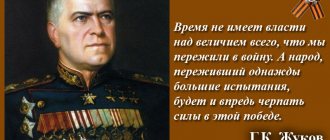Biography
The German thinker was born on February 22, 1788. Arthur's father was a businessman, and his mother was a writer. From childhood, Arthur was given the opportunity to devote himself entirely to his studies. Already at the age of 9, he studied in Le Havre, then in Runge, and at the age of 15 he left to get an education in England. At the same time, he traveled a lot around Europe.
Being a wealthy young man, Schopenhauer could afford a long search for a vocation. So, he spent two years at the University of Göttingen, studying to become a doctor, and then transferred to the University of Berlin to study philosophy. He was especially attracted to Schelling's work on willpower, as well as Locke's studies. He studied the teachings of Kant and Plato with great care. Having completed his studies in 1813, he immediately began to write the main work of his life.
Arthur's relationship with his parents was tense. The father was burdened by family relationships for a long time and eventually abandoned the family, after which, after some time, he committed suicide. And the mother was too cheerful, which resonated too much with the pessimistic nature of the future philosopher. Therefore, in 1814 he decided to live separately from his mother. It was during this period that he led the most active social life and acquired contacts in secular circles.
The biography of the thinker ended on September 21, 1860, when his life was cut short.
Quotes and aphorisms
“Aphorisms of Worldly Wisdom” is a book written by Arthur Schopenhauer and which gained popularity not only in the philosopher’s homeland. By worldly wisdom he means the ability to lead life in a state of happiness and carefreeness. A person living happily holds on to his life not out of fear of dying, but for its own sake. This position is called “eudaimonology.”
The book is divided into five sections, which can be briefly described as follows:
- the first gives general terms and describes the elements of a happy life;
- the next section talks about what a person is;
- the third section focuses on those things that make up the material side of life;
- the fourth section talks about the principles of human existence;
- The fifth section concentrates on the rules and teachings formulated by Schopenhauer and designed to help people live consciously and happily.
People have different fates only because they have differences in:
- state of health, beauty, physical strength, temperament, intelligence and morality;
- available property;
- other people's opinions about them.
These are the most important factors influencing a person’s ability to live happily. The external world can influence a person only to the extent that it resonates in his inner world. So, if we are talking about phlegmatic people, then the surrounding reality in which he lives will be boring and joyless. And a sanguine person will be able to discern a curious event in what seems like a tragedy for a melancholic person.
Thus, Schopenhauer puts forward a theory according to which only a person’s personality is the main condition for his happiness. It has an absolute value, while other goods are relative.
The book contains many interesting aphorisms and sayings that reveal the essence of wisdom and a deep understanding of happiness, even if it is associated with deprivation and self-restraint. The most important of them are the following:
- Sometimes we think we are longing for some distant place, when in fact we are longing for the time we spent there, younger and more vigorous than we are now. This is how time deceives us under the guise of space.
- The average person is concerned with how to kill time, but the talented person strives to use it.
- You should refrain in conversation from any critical, even benevolent, remarks: it is easy to offend a person, but to correct him is difficult, if not impossible.
A happy life is impossible without the ability to find a common language with other people and establish harmonious relationships.
APHORISMSArthur Schopenhauer
1. Each person can fully be himself only while he is alone2. Health so outweighs all other blessings of life that a truly healthy beggar is happier than a sick king
3. Getting married means halving your rights and doubling your responsibilities.
4. In illness or grief, memory portrays to us every painless or needless hour as infinitely enviable, like a lost paradise. But while experiencing our red days, we do not notice them at all and yearn for them only when the dark ones come
5. In old age there is no better consolation than the knowledge that all the strength in youth was devoted to a task that does not grow old
6. A fool chases pleasure and finds disappointment, but a wise man only avoids grief.
7. The average person is concerned with how to kill time, but the talented person strives to use it
8. Nine-tenths of our happiness depends on health
9. There is only one innate error - the belief that we are born for happiness.
10. True friendship is one of those things that, like giant sea serpents, we don’t know whether they are fictional or exist somewhere.
11. A person’s true character is revealed precisely in the little things, when he stops taking care of himself
12. It is better to discover your mind in silence than in talking.
13. The similarity between a genius and a madman is that both live in a completely different world than all other people
14. Just as medicine fails to achieve its goal if the dose is too large, so do blame and criticism when they exceed the measure of justice.
15. Vanity makes a person talkative
16. Honor is external conscience, and conscience is internal honor
17. Don't tell your friend what your enemy shouldn't know.
18. If you do not want to make enemies for yourself, then try not to show your superiority over people
19. To erect a monument to someone during his lifetime means to declare that there is no hope that posterity will not forget him
20. Those who hope to become philosophers by studying the history of philosophy should rather take away from it the conviction that they will be born philosophers, just like poets, and, moreover, much less often
21. It will be too much honor for them to value people's opinions highly.
22. Each sees in another only what is contained in himself, for he can comprehend it and understand it only to the extent of his own intellect.
23. Solitude frees us from the need to live constantly in front of others and, therefore, to take into account their opinions
24. In solitude, everyone sees in themselves what they really are.
25. He who does not like loneliness does not like freedom
26. Loneliness is the lot of all outstanding minds
27. When people enter into close communication with each other, their behavior resembles porcupines trying to warm themselves on a cold winter night. They are cold, they press against each other, but the more they do this, the more painfully they prick each other with their long needles. Forced to separate because of the pain of the injections, they come together again because of the cold, and so on all night long.
28. Just as animals perform some services better than people, for example, finding a way or a lost thing, etc., so an ordinary person is more capable and more useful in ordinary cases of life than the greatest genius. And further, just as animals never actually do stupid things, so the average person does them much less than a genius
29. What is in a person is undoubtedly more important than what a person has
30. An individual person is weak, like an abandoned Robinson: only in community with others can he do much.
31. Man is the only animal that causes pain to others without having any other purpose.
32. A person’s face expresses more and more interesting things than his mouth: the mouth expresses only the thought of man, the face expresses the thought of nature
33. You should refrain in conversation from any critical, even benevolent, remarks: it is easy to offend a person, but to correct him is difficult, if not impossible.
34. Wealth is like sea water, which makes you thirstier the more you drink.
35. All scoundrels, unfortunately, are sociable
36. A poor little man, having nothing to be proud of, grabs hold of the only thing possible and is proud of the nation to which he belongs.
37. Each nation mocks the other, and they are all equally right
38. The cheapest pride is national pride
39. Preaching morality is easy, but justifying it is difficult.
40. Life and dreams are pages of the same book
41. We deceive no one so cleverly and do not bypass us with flattery as we do ourselves
42. Every child is part genius, and every genius is part child
43. In practical life, a genius is no more useful than a telescope in the theater.
44. From the point of view of youth, life is an endless future; from the point of view of old age - a very short past
45. Human life, in essence, cannot be called either long or short, since in essence it serves as the scale by which we measure all other periods
46. A doctor sees a person in all his weakness, a lawyer - in all his meanness, a theologian - in all his stupidity.
47. Of the personal qualities that most directly contribute to our happiness, a cheerful disposition
48. The more a person has in himself, the less other people can give him. This is why intelligence leads to unsociability
49. Boredom primarily torments noble and rich people
50. Hundreds of objects that give people pleasure are boring for a big mind.
51. A very mentally limited person is essentially the happiest, although no one would envy such happiness
52. Deep knowledge is the first condition of happiness
53. The opinions of others about our lives are usually valued excessively, due to the weakness of human nature. Just as a cat purrs when it is stroked, it is also worth praising a person so that his face will certainly shine with true bliss
54. It is necessary to moderate excessive sensitivity to other people's opinions, both if we are flattered and if we are blamed. Otherwise we will become slaves to other people's opinions and moods
55. If we happen to hear half a dozen sheep disparagingly scolding an outstanding person, then we will understand that it will be a great honor for them to value people’s opinions highly
56. Pride is a person’s ready conviction of his own high value. Vanity is the desire to induce this belief in others
57. A vain person should know that the good opinion of others, which he so strives for, is much easier and more likely to be created by silence than by talkativeness.
58. Given the shamelessness and stupid arrogance of the majority, anyone who has any inner virtues should openly display them so as not to let them be forgotten. This course of action is especially recommended for those who have the highest real personal merits, which cannot be constantly reminded of (titles and orders). Otherwise, the Latin proverb about the pig teaching Minerva may come true
59. He who communicates with people in simplicity of soul as equals, people will sincerely consider him an equal.
60. The cheapest pride is national. He who has great personal merits, constantly observing his nation, first of all notices its shortcomings. But a poor man, who has nothing of which he could be proud, grabs at the only thing possible and is proud of his nation; he is ready with a feeling of tenderness to defend all her shortcomings and stupidities
61. It must be admitted that there are few good features in the national character, because its subject is the crowd
62. The crowd has eyes and ears, but very little reason and just as much memory. She applauds at the moment of merit, but soon forgets about it. In this case, it is appropriate to create a reminder in the form of a cross or a star everywhere and always audible to the crowd: This one is no match for you, he has merit! However, if unfairly appointed, the order loses this value, so caution should be exercised in this regard.
63. A person sees that it is not so important to be an active member of society in one’s own opinion and conscience, as to appear as such in the opinion of others. Hence the diligent hunt for the favorable opinions of other people
64. By scolding someone, a person thereby shows that he cannot bring anything substantiated against him, because otherwise he would start with this, and would calmly leave others to draw conclusions
65. Whoever violates trust once loses it forever
66. The means cannot be more expensive than the goal
67. Rudeness is the strongest argument against which no mind can resist
68. A sage should not pay attention to insults
69. In the Middle Ages, God was forced not only to take care of us, but also to judge us
70. Each reproach can only hurt to the extent that the slightest hint that hits the target strikes much deeper than the most serious accusation that has no basis. That is why, whoever truly realizes that he does not deserve reproach will calmly despise it. And what a shaky opinion of his own dignity must he have who is in a hurry to cover the mouth of every statement that offends him, so that it is not made public?
71. The honor of a nation lies not only in the instilled opinion that it is to be trusted, but also that it is to be feared: therefore it must never allow any infringement of its rights to go unpunished.
72. Everyone lays claim to honor, but only exceptions to glory, for glory can only be acquired by extraordinary distinctions
73. Everyone can value and understand only what is related to him and of the same essence. But the flat is related to the flat, the vulgar is related to the vulgar, and everyone likes his own works most of all, as the most related
74. Whoever wants to sum up his life in terms of well-being should count not by the pleasures he experienced, but by the number of evils he avoided
75. “Living happily” means “living less unhappily”
76. Brilliant, noisy festivals and amusements have an inner emptiness in themselves, because they loudly contradict the poverty and wretchedness of our existence
77. Academies and departments of philosophy present a sign, an outward appearance of wisdom, but it is not there, and one must look for it in a completely different place
78. Others live too much in the present - they are frivolous; others are too busy with the future - these are fearful and caring. It is rare that someone strictly adheres to the proper measure
79. Those who miss the present, not using it and not enjoying it, and living only in the future with aspirations and hopes - such people, despite their important, wise faces, are like those donkeys in Italy, whose progress is accelerated by being tied to a bale of hay is hung on a stick in front of their nose, and they still hope to get to it. Such people deceive themselves for their entire existence, living constantly temporarily.
80. To maintain peace of mind, we must constantly remember that this day comes only once and never returns
81. We miss thousands of pleasant hours with a gloomy expression, not enjoying them, so that later we sigh for them with vain longing
82. He who lives in the bustle of business or pleasure, without thinking through what he has experienced, but only winding up the ball of life, meaningful consciousness eludes him. His spirit represents chaos, and some confusion creeps into his thoughts, which is immediately noticed by the fragmentary and incoherent nature of his conversation.
83. You can only be in the most complete harmony with yourself; not with a friend, nor with a lover, because the difference in personality and mood each time produces some dissonance. Therefore, deep peace of heart and tranquility of spirit are possible only in solitude
84. What makes people sociable is their inability to tolerate being alone. Dissatisfaction with inner emptiness is what drives them into society
85. In every society, as long as it is populous, vulgarity prevails
86. When good manners come, common sense goes
87. Nature has made the sharpest difference between people in all respects. Society, neglecting this, puts everyone on the same level, and moreover, creates artificial differences according to the levels of class and rank, which are very often opposite to the rank assigned by nature
88. A person gifted with mind and spirit represents a unit, not a fraction
89. Great minds have as little inclination to get along with others as teachers do to interfere in the games of children making noise around them.
90. Just as in every city, next to the noble ones, all kinds of rabble and bastard live, so in every, even the most noble person, there are completely base and vile traits of human nature. One should not excite this inner rabble and allow it to look out of the windows
91. One should always and everywhere remain master over the impressions of one’s surroundings
92. Truly great minds huddle alone like eagles on the peaks
93. Most people are so subjective that they are not interested in anything except themselves
94. A person with a correct view among those who are mistaken and confused is like one whose clock goes correctly, while all the city clocks are set incorrectly. He alone knows the present tense, but what is the use of it? Everyone checks and sets their watches to the wrong city hours, even those who know that their watches show correctly
95. It is not easy to lose a friend due to a proud and somewhat dismissive attitude, but it is very easy due to excessive friendliness and courtesy, which make him arrogant and obnoxious
96. You should be careful not to form a very favorable opinion about a person upon your first acquaintance, otherwise in most cases you will be disappointed
97. A person reveals his character in trifles and trifles, in which he does not hold back. And such cases should not be missed in order to observe about him and draw conclusions about him
98. If someone acts in petty everyday affairs without taking others into account, seeks only his own benefits to the detriment of others, then be sure that there is no justice in his heart, and that he will turn out to be a scoundrel in large matters as well.
99. Understanding a rule is one thing, but learning to apply it is another. The first is assimilated by the mind immediately, and the second - through exercises, gradually
100. Just as you carry the weight of your own body without noticing its weight and feel every extraneous weight, so you do not notice your own vices and shortcomings, but see only those of others
101. Revealing your intelligence and abilities (in front of others) is only an indirect way of convicting others of mediocrity and stupidity
102. Revealing your anger and hatred on your face and in your words is useless, funny and vulgar. There is no other way to show anger and hatred than in reality.
103. Nothing can better adapt us to calmly enduring the misfortunes that befall us than the conviction of the truth that everything that is done - from the great to the last little thing - is done necessarily.
104. Just as hard wax can be made so soft with a little warmth that it takes on any shape, so the most stubborn and hostile people can be made pliable and amiable with a little politeness and affection.
105. Politeness is recognized hypocrisy
106. Politeness is a fig leaf of selfishness
107. Politeness is an openly recognized counterfeit coin
108. If we always remembered that ordinary politeness is only a mask, then we would not scream in horror if it ever moves a little or is taken off for a minute. When someone becomes downright rude, it is the same as if he took off his clothes and appeared in all his natural form.
109. Anyone who wants to be trusted in his judgment must express it calmly and without any passion
110. Never succumb to the temptation of self-praise, even if you have undeniable rights to do so.
111. A man’s face speaks more than his mouth, being the monogram of all his thoughts and aspirations
112. The mouth expresses only the thought of man, the face expresses the thought of nature
113. The nobler and more perfect a thing is, the later and slower it reaches its maturity
114. Men may not notice what lies under their noses, but women see it clearly
115. There is a natural indifference between men; There is already natural hostility between women
116. Just as we do not feel the general health of our body, but only a small place where the boot is pinching, so we also think not about the sum of things going quite well, but about some insignificant little thing that has annoyed us
117. Whoever wants to briefly believe the statement that pleasure exceeds pain, let him compare the sensations of two animals - the devourer and the devoured
118. We are like lambs who frolic in the meadow while the butcher chooses with his eyes this or that, for in the midst of our happy days we do not know what misfortune fate has in store for us - illness, impoverishment, blindness, injury or madness
119. Everything we fight for resists, for everything has its own will that must be overcome
120. History, depicting the life of peoples, only tells us about wars and disturbances: peaceful years sometimes slip by only as short pauses, as intermissions. In the same way, human life is a continuous struggle - with need, with boredom, with other people. He meets adversaries everywhere, spends his life in continuous struggle and dies with weapons in his hands.
121. If the human race did not experience need, hardship, and troubles, then people would partly die of boredom or hang themselves, partly would fight with each other and cut and strangle each other and would cause themselves much more suffering than nature imposes on them
122. Let us imagine that the act of generating a person would not be accompanied by either need or lust, but would be a matter of purely prudent reflection: could the human race still exist then?
123. The most appropriate way for people to address each other instead of: “dear sir”, “sir”, etc. should be: “comrade in suffering”
124. Courage allows for the following explanation: a person voluntarily goes towards the trouble that threatens him at the current moment, in order to thereby prevent even greater troubles in the future, while cowardice does the opposite
125. Even the greatest genius turns out to be decidedly stupid in any branch of knowledge; even the most beautiful, noble character sometimes strikes us with individual traits of depravity - as if to recognize our kinship with the human race
126. Our civilized world is nothing more than a huge masquerade. It has knights, clergy, soldiers, doctors, lawyers, priests, philosophers. But they are not all what they represent. Under these masks hide notorious traders and speculators
127. A beautiful girl has no friends because people try to avoid her out of envy of her advantages.
128. But still, in this world, striking us again every time, phenomena of honesty, kindness and nobility, as well as great intelligence and genius, emerge very scatteredly. They shine to us from a huge dark mass, like individual shiny points
129. This is the lot of great people in the world: they are only recognized when they are no longer alive
130. If someone stands out among us, let him go - this is the unanimous slogan of mediocrity everywhere
131. As soon as an outstanding talent emerges in any profession, immediately all the mediocrities of this profession try to hush up the matter and deprive him of the opportunity to become famous
132. Envy is an undoubted sign of the lack of what it is directed towards.
133. Everyone can praise only at the expense of their own significance; everyone, asserting glory for another figure in his or a related specialty, in essence takes it away from himself. As a result, people are inclined not to praise, but to blame, because through this they indirectly praise themselves. If they do praise, then they have other motives and considerations for this.
134. A wig is a symbol of a scientist. He decorates his head with an abundant mass of other people's hair in the absence of his own, just like learning in adorning the head with a huge variety of other people's thoughts
135. The most perfect scholarship is to genius as a herbarium is to the ever-regenerating, ever-fresh, ever-changing world of plants
136. Constant reading takes away all elasticity from the mind, just as a constantly pressing weight takes it away from a spring, and the surest way to not have your own thoughts is to immediately grab a book at every free moment
137. The least worthwhile thing to do is to move away from the contemplation of the real world for the sake of reading.
138. Scholars are those who have read books; but the thinkers, geniuses and movers of humanity are those who read directly in the book of the universe
139. Every great suffering, whether physical or spiritual, tells us what we deserve, for it could not befall us if we did not deserve it
140. Instead of being exclusively and eternally concerned with plans and worries about the future or indulging in longing for the past, we must always remember that the present alone is real and the only certainty. Therefore, we must always honor the present with a warm welcome, enjoy every tolerable hour with a consciousness of its value, and not darken it with annoyed grimaces due to unfulfilled hopes in the past or worries about the future
Return to contents






